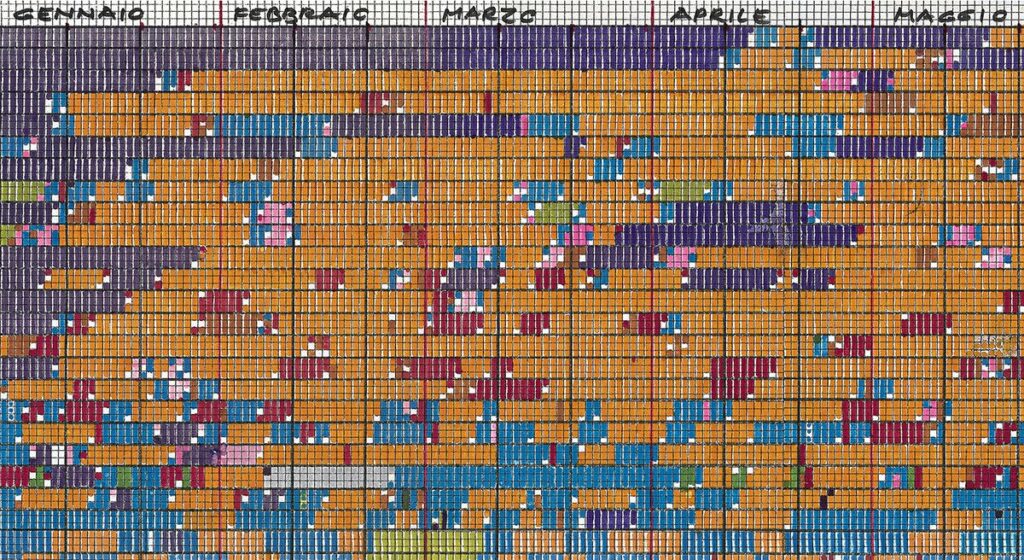Living in Colour

Since 1963, when I left London to work and stay in Sardinia, I kept and still keep a yearly agenda/diary, one day for a page, to note the place where I am, the weather, the appointments, the site visits and the other sort of events of some interest. These are labelled by year and kept on the shelves in my studio at home in Palau.
It happened some time ago that while in Genoa for Christmas holidays with my family, I had the time and the curiosity to represent in a mimetic image the days I spent in Sardinia and other places since my arrival from London. [1] And so here is where my colourful diary starts and stops, since never later on I had the time to continue.
Notes
- Alberto’s children, Marta and Mario, helped colour and fill in the diary: ‘My brother Mario and myself grew up in the rigour of coloured lines and life lessons. He taught us that everything has a soul, its own colour its own name. Thus sheet music was coloured: the Doh is red, the Re is green … And seeing them coloured, father sight-read them at the piano. The magic has been to realise now at almost 40 that the emotions I feel when seeing a Mark Rothko painting for the first time or a ship in a dry dock, I owe to my father. He silently enriched us, making us see how a landscape, any object could be transformed into a thousand colours and infinite dimensions. As kids we hated leaving for the long holidays in September, wandering around cities in Europe in search of concrete buildings and museums. But today all that has endured in his houses, in his drawings, in his writings and in our eyes. A delimitation of emotion, a rationality of ideas almost as Plato tried to structure them in the human mind, father coloured, drew and transformed into paintings and houses. The extreme rigour combined with the irrational emotion of the colour of this calendar represent the order and precision that together with the irrational emotion of nature and art characterise the works of Ponis and make him a renowned architect and a great father.’ – Marta Ponis
